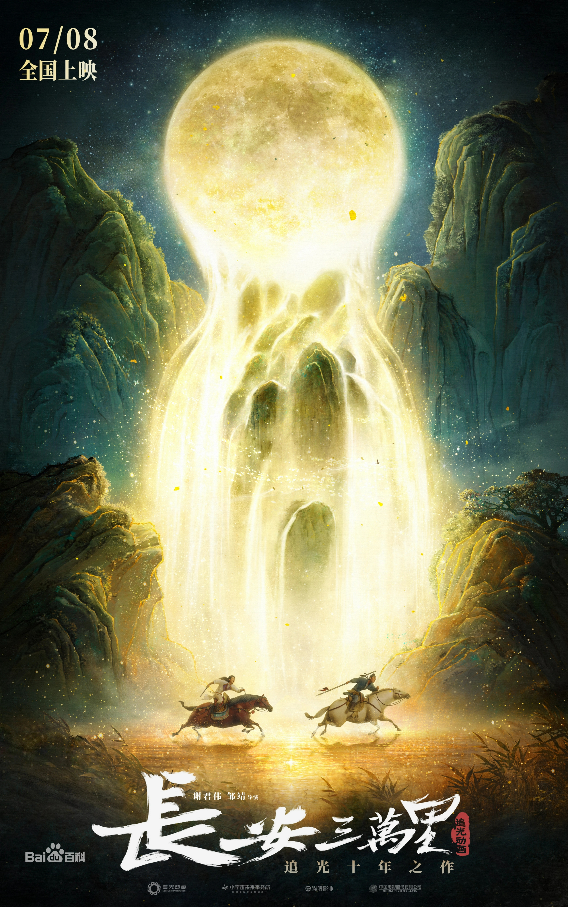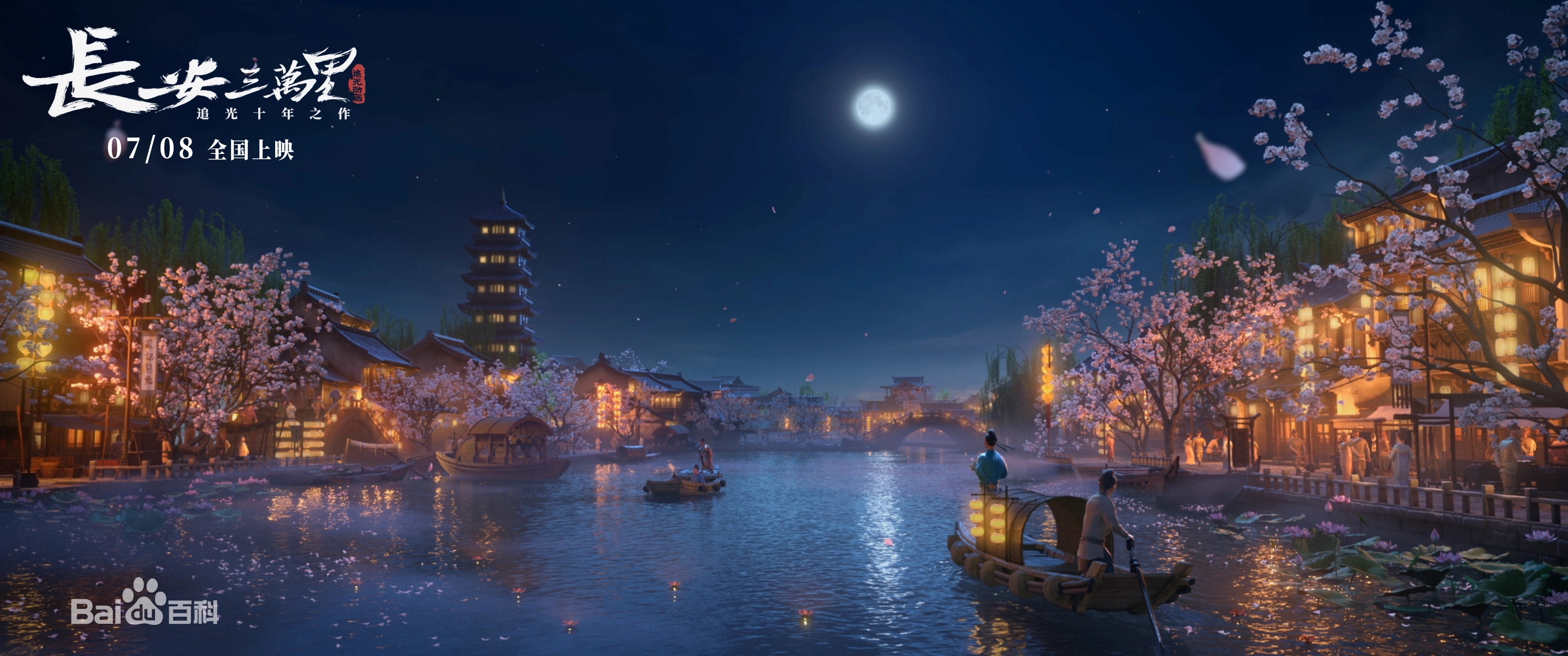Named after the ancient city of Xi’an in Shaanxi province, which served as the capital of the Tang Dynasty for over 280 years, the film epic spans 168 minutes — the longest runtime of any Chinese animated movie — and brings to life some of the most iconic figures in Chinese literary history. Since its release on July 8, the movie has garnered a rating of 8.2 out of ten on Douban, one of the country’s largest review aggregators, solidifying its position as one of the most acclaimed animated blockbusters of the summer season. Despite Li and Du having been featured in many movies and TV shows in past decades, the movie employs an unconventional perspective, starting with the memories of Gao Shi, also a renowned poet and confidant of Li, to chronicle the vicissitudes of Li’s life, one of the country’s most beloved poet. Aside from Li and Gao, the movie features some of the most famous poets and artists of the era, including Wang Changling, known for military-themed poems, calligrapher Zhang Xu, and palace musician Li Guinian, as well as royal members who held significant influence within the literati circle, such as Princess Yuzhen. Interweaving the personal fates of these figures, the film vividly reenacts the magnificent scenes of the Tang Dynasty. It showcases the bustling streets of ancient Chang’an, the vibrant and prosperous city of Yangzhou, as well as the harsh and snowy borderlands in northwestern China. The movie also beautifully captures the free-spirited nature of the Tang Dynasty. For instance, in the national civil service examination, the highest achievers are granted the privilege to ride magnificent horses and pluck the most exquisite flower from any residence in the capital city. Additionally, poets would visit local taverns for moments of inspiration, where they would revel in the company of foreign dancers, enjoying their captivating movements and melodious singing, while enjoying wine and crafting verses of poetry. In order to accurately convey the glamour of Tang poetry and better translate the cultural context embedded in the dialogue, the production team invited Linda Jaivin, an Australian sinologist, to assist with the translation process. Linda Jaivin has been deeply engaged in Chinese and English culture for more than 40 years and has translated many famous Chinese films, such as Farewell My Concubine, Forever Enthralled, Hero, Ashes of Time, and A City of Sadness. “Jaivin's translation work began in the first half of last year. Despite her already extensive knowledge of Chinese culture, she found some poetry lines and place names to be quite challenging, requiring careful consideration and repeated contemplation,” says Song Yiyi, the movie’s producer. | 

